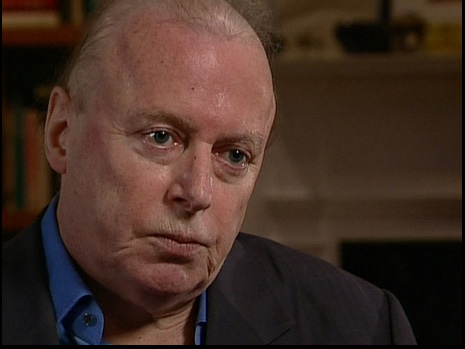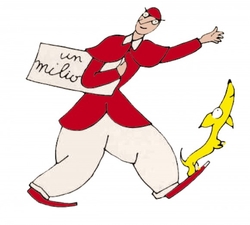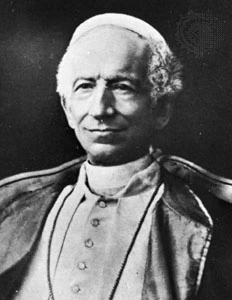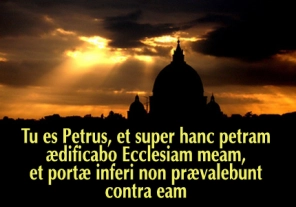Blog Archives
Cristopher Hitchens Still Doesn’t Get It
It is getting more than slightly pathetic to look how Christopher Hitchens, now rapidly approaching the day of the redde rationem, continues not only to ignore the fundamental issue his disease poses to everyone else’s attention, but is even peeved that people pray for his conversion.
Mr. Hitchens writes on the Washington Post:
the offer of prayer can only have two implications: either a wish for my recovery or a wish for a reconsideration of my atheism (or both). In the first instance, a get-well card – accompanied by a good book or a fine bottle – would be just as bracing if not indeed more so. (Also easier to check.) In the second one, a clear suggestion is present: surely now, at last, Hitchens, your fears will begin to vanquish your reason. What a thing to hope for!
This man’s logic is gravely flawed.
In the first instance, the invitation to send get-well cards and bottles of wine instead of prayers is, beside looking very tacky, utterly dismissive of the sincerity of those who pray for his recovery. Love is at work here, and the man doesn’t see it. By the way, this is in contrast with a previous interview of him, in which he had said he was fine with people praying for his recovery; apparently, it must now be wine instead.
In the second instance, Hitchens forgets a great truth, that “the fear of the Lord is the beginning of wisdom”. It is obvious that a faith solely based on fear is far away from the ideal of Christianity, but it cannot be denied that if fear can move this man (or any other man) towards the Truth, then fear is a welcome and powerful instrument for the salvation of souls.
All this escapes Hitchens. He is so much in love with his own love for himself that the idea of having to give away a bit of it seems repellent to him. “Better to slowly die in the terrifying conviction that I am right and complete annihilation awaits me than to bow to something greater than my love for myself”, goes his reasoning.
Mind, he still can’t escape the fear; he’ll just do his very best to refuse wisdom.
After this priceless pearl or arrogance, Hitchens proceeds to write a piece of so unbelievably massive tosh that one has to doubt his oh so often celebrated intelligence.
An intelligent man generally knows what he’s talking about and when Mr. Hitchens talks about Christianity he is supposed to know the first foundations of it; alas, this doesn’t seem to be the case.
Let us read what the man has to say:
“The deity whose intercession is being implored is claimed to be omniscient, omnipotent and omnipresent. It is fully aware of the situation. It can make me a believer if it chooses, or wave away my carcinoma. Why should it be swayed by the entreaties of other sinners?”
The mental confusion here is astonishing, and not due to medicines. It is a basic tenet of mainstream Christianity (and one which Hitchens, who writes about it, is not authorised to ignore) that Hell is a choice God leaves to every individual.
It is a bit too easy to wilfully choose Hell (as Mr. Hitchens continues to do) and then to imply that an omniscient God would make of him a believer if he wanted. Yes he could; but he won’t, and that’s the entire matter.
Mr. Hitchens continue to dodge the fundamental point: it is his choice and his responsibility, and it will be his freely chosen Heaven or Hell. He has written books about God, but he still can’t grasp the basics.
The last part, the “why God would be swayed by prayer” one, is of such ice-cold cynicism that it could only come from a man whose mother has committed suicide. Still, such an affirmation goes to show the absolute nothingness of these “thinkers”, unable to even conceive the infinite power of love and the way Love decides everything, and can change everything.
Mr. Hitchens may have some extenuating circumstances. Still, the tragic occurrences of his life are no excuse for such appalling refusal of love and for such appalling spreading of scandal and perdition.
One may have doubts, and keep them for oneself. One may have hard tests and be unable to pass them. But the spreading of blasphemies on a planetary scale cannot be excused by any personal circumstance. His stance is, in the end, his choice and his responsibility. His brother was born of the same mother and suffered the same drama, but he reacted differently in the end. The one chose the redemption of love, the other the coldness of self-deification.
Mr. Hitchens is receiving the biggest grace of his life. On the wretched platform of his disgraceful existence the last train patiently awaits, the fruit of love utterly unmerited and still freely given.
This train will stay there for a long time, months or perhaps years, patiently wait for him to make the step that would save him. Alas, he seems resolute in refusing to board salvation and in wanting to lose souls with his last breath.
Mundabor





















You must be logged in to post a comment.